Showing 85–96 of 110 results
-
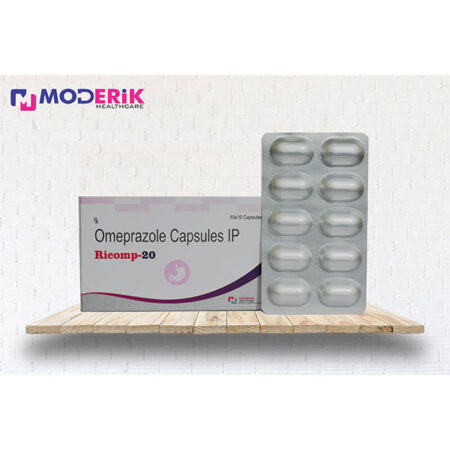
RICOMP-20-CAP
Read more- It is a well-tolerated medicine and provides relief for a long time.
- Some healthy tips to prevent acidity from happening:
- Avoid excessive intake of carbonated beverages/soft drinks, citrus juices, fried food, caffeinated beverages like tea and coffee.
- Avoid alcohol and smoking.
-
Avoid eating late at night or before bedtime.
- Inform your doctor if you get watery diarrhea, fever or stomach pain that does not go away.
- Inform your doctor if you do not feel better after taking it for 14 days as you may be suffering from some other problem that needs attention.
- Long-term use of Ricomp 20 Capsule can cause weak bones and a deficiency of minerals such as magnesium. Take adequate dietary intake of calcium and magnesium or their supplements as prescribed by your doctor.
-
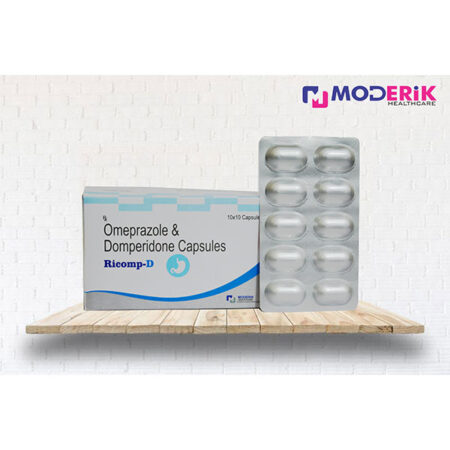
RICOMP-D
Read more- You have been prescribed Ricomp-D Capsule for the treatment of acidity and heartburn.
- Take it one hour before the meal, preferably in the morning.
- It is a well-tolerated medicine and provides relief for a long time.
- Inform your doctor if you get watery diarrhea, fever or stomach pain that does not go away.
- Inform your doctor if you do not feel better after taking it for 14 days as you may be suffering from some other problem that needs attention.
-
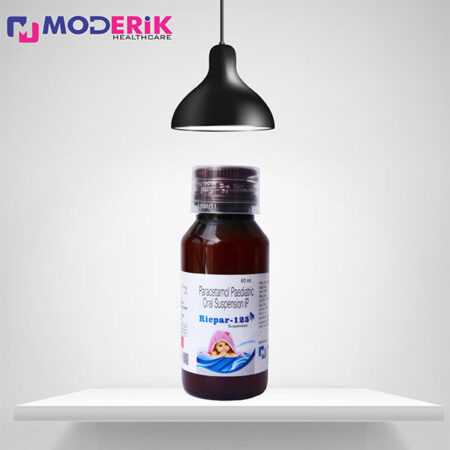
RICPAR-125-SYP
Read more-
Give Ricpar 125 Oral Suspension to your child with food or milk to prevent an upset stomach.
-
Your child should not take more than four doses of this medicine in 24 hours, so wait up to 6 hours between doses.
-
Never give any other medicine formulation containing paracetamol along with this medicine as that may lead to serious side effects.
- Inform the doctor if your child has liver disease as the dose may need to be adjusted.
-
-
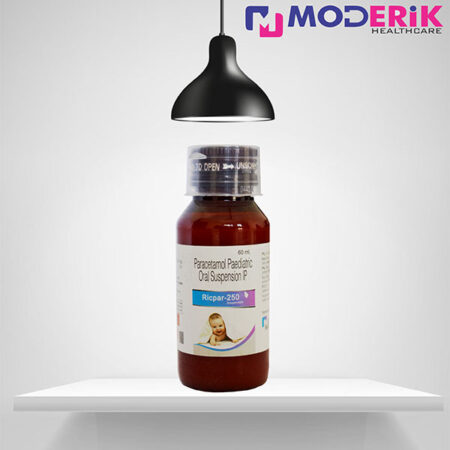
RICPAR-250-SYP
Read more- Give Ricpar 250 Oral Suspension to your child with food or milk to prevent an upset stomach.
- Your child should not take more than four doses of this medicine in 24 hours, so wait up to 6 hours between doses.
- Never give any other medicine formulation containing paracetamol along with this medicine as that may lead to serious side effects.
- Inform the doctor if your child has liver disease as the dose may need to be adjusted.
-
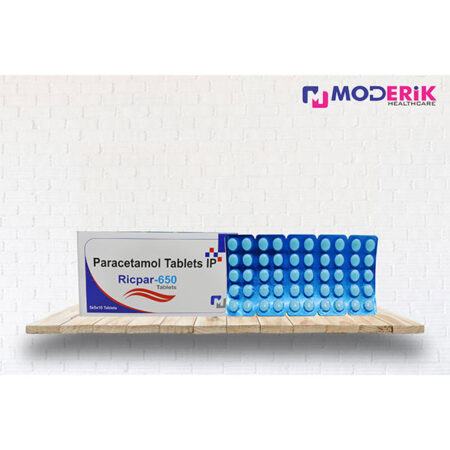
RICPAR-650
Read more-
Ricpar 650mg Tablet should be taken with food or milk to prevent upset stomach.
- Take it as per the dose and duration prescribed by your doctor. Long-term use may lead to serious complications such as stomach bleeding and kidney problems.
- Do not take indigestion remedies (antacids) within two hours of taking Ricpar 650mg Tablet.
- Avoid consuming alcohol while taking this medicine as it can increase your risk of stomach problems.
- Inform your doctor if you have liver disease as your dose may need to be adjusted.
- Your doctor may regularly monitor your kidney function, liver function, and levels of blood components if you are taking this medicine for long-term treatment.
-
-

RICPAR-DP
Read more- You have been prescribed this combination medicine for relieving pain and inflammation.
- Take it with food to avoid getting an upset stomach.
- It may cause dizziness and sleepiness. Do not drive or do anything that requires mental focus until you know how it affects you.
- Avoid consuming alcohol when taking Ricpar-DP Tablet as it may cause excessive drowsiness and increase the risk of liver damage.
- Do not take it with any other medicine containing acetaminophen (drugs for pain/fever or cough-and-cold) without asking your doctor first.
-
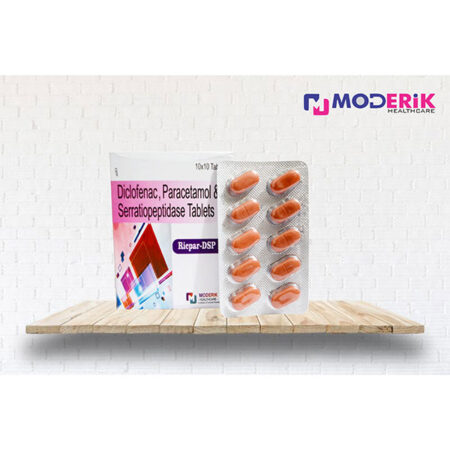
RICPAR-DSP
Read more- You have been prescribed this combination medicine for relieving pain and inflammation.
- Take it with food to avoid getting an upset stomach.
- It may cause dizziness and sleepiness. Do not drive or do anything that requires mental focus until you know how Ricpar-DSP Tablet affects you.
SALT COMPOSITION
Diclofenac , Paracetamol & Serratiopeptidase
-
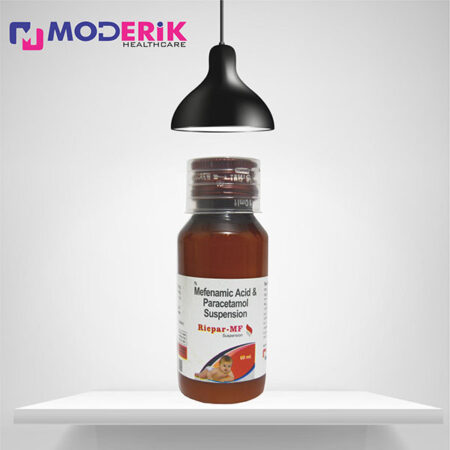
RICPAR-MF
Read more- Ricpar-MF Oral Suspension is used to reduce pain as well as fever in children and infants.
- Do not take it with any other medicine containing paracetamol (drugs for pain/fever or cough-and-cold) without asking your doctor first.
- Maintain a log of your child’s temperature. If you do not see any improvement, contact your child’s doctor for advice.
- Keep a track of the dose and the frequency in which you have given this medicine to your child. This will help prevent overdosing.
-
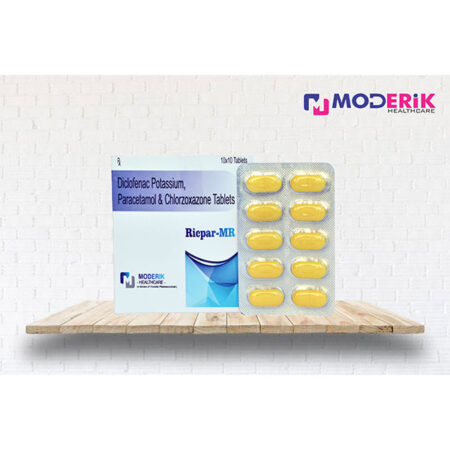
RICPAR-MR
Read more- You have been prescribed Ricpar-MR Tablet to relieve pain due to muscle spasm.
- This medicine is most effective when taken along with proper rest and physical therapy.
- Avoid consuming alcohol when taking Ricpar-MR Tablet as it may cause excessive drowsiness and increase the risk of liver damage.
- Older adults may have increased drowsiness, confusion, and higher risk of falling as a result of taking Ricpar-MR Tablet.
- Do not take it with any other medicine containing acetaminophen (drugs for pain/fever or cough-and-cold) without asking your doctor first.
-
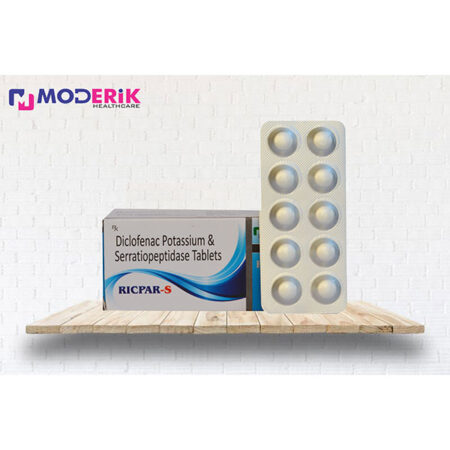
RICPAR-S
Read more- This combination medicine helps relieve pain and inflammation.
- Take it with food to avoid getting an upset stomach.
- Take it as per the dose and duration prescribed by your doctor.
- It may cause dizziness and sleepiness. Do not drive or do anything that requires mental focus until you know how Ricpar-S Tablet affects you.
- Avoid consuming alcohol when taking this medicine as it may cause excessive drowsiness and increase the risk of liver damage.
-
Your doctor may regularly monitor your kidney function, liver function and levels of blood components if you are taking this medicine for long-term treatment.
-
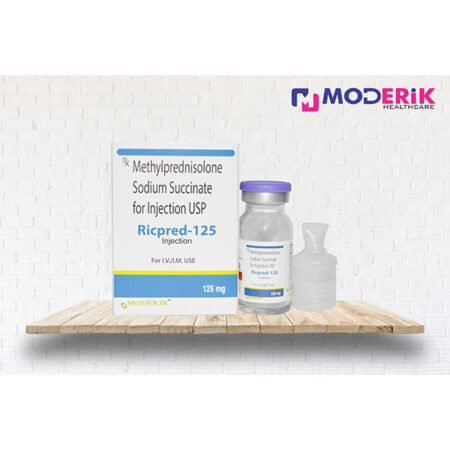
RICPRED-125
Read moreRICPRED-125 (Methylprednisolone 125 mg Injection)
Uses:
- Inflammatory Conditions:
- Used to treat various inflammatory conditions such as arthritis, lupus, psoriasis, and ulcerative colitis.
- Effective in reducing inflammation and immune responses.
- Allergic Reactions:
- Used to manage severe allergic reactions such as anaphylaxis.
- Helps to alleviate symptoms of allergies like skin rashes and respiratory issues.
- Autoimmune Diseases:
- Prescribed for conditions where the immune system attacks its own tissues, such as multiple sclerosis.
- Reduces immune system activity.
- Endocrine Disorders:
- Utilized in the management of certain endocrine disorders like adrenal insufficiency.
- Acts as a replacement therapy for hormones that the adrenal glands fail to produce.
- Respiratory Diseases:
- Effective in treating respiratory conditions like asthma and chronic obstructive pulmonary disease (COPD).
- Reduces inflammation in the airways.
- Skin Disorders:
- Helps in treating severe skin conditions such as eczema and dermatitis.
- Reduces redness, swelling, and itching.
- Oncology:
- Used as part of cancer treatment protocols to manage symptoms and side effects of chemotherapy.
- Reduces inflammation and helps in managing nausea and vomiting.
Side Effects:
- Common Side Effects:
- Increased Appetite: May cause weight gain due to an increase in appetite.
- Mood Changes: Possible mood swings, anxiety, or depression.
- Insomnia: Difficulty in sleeping or disturbances in sleep patterns.
- Gastrointestinal Issues:
- Stomach Upset: Nausea, vomiting, or indigestion.
- Ulcers: Increased risk of peptic ulcers or gastrointestinal bleeding.
- Musculoskeletal Effects:
- Muscle Weakness: Possible muscle atrophy or weakness.
- Bone Loss: Increased risk of osteoporosis with long-term use.
- Endocrine Effects:
- Adrenal Suppression: Reduced ability of adrenal glands to produce cortisol.
- Cushing’s Syndrome: Symptoms include weight gain, thinning skin, and high blood pressure.
- Immune System Suppression:
- Increased Infection Risk: Higher susceptibility to infections due to immune suppression.
- Dermatological Effects:
- Skin Changes: Thinning of the skin, easy bruising, and slower wound healing.
- Metabolic Effects:
- Hyperglycemia: Elevated blood sugar levels, especially in diabetic patients.
- Electrolyte Imbalance: Possible changes in potassium, calcium, and sodium levels.
- Cardiovascular Effects:
- Hypertension: Increased blood pressure.
- Fluid Retention: Swelling due to retention of sodium and water.
- Ophthalmic Effects:
- Cataracts: Increased risk of developing cataracts.
- Glaucoma: Elevated intraocular pressure.
Conclusion:
Methylprednisolone 125 mg injection is a powerful corticosteroid used to treat a variety of conditions involving inflammation and immune responses. While it is effective in managing these conditions, it also has a range of potential side effects, especially with long-term use. It is important to use this medication under the guidance of a healthcare professional to balance the benefits and risks.
- Inflammatory Conditions:
-
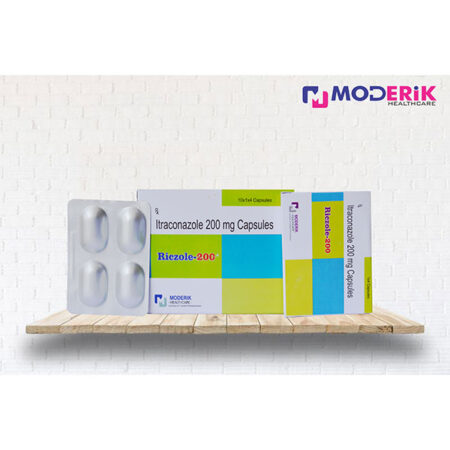
RICZOLE-200-CAP
Read more- Riczole 200 Capsule helps treat fungal infections of mouth, skin, vagina or any other parts of the body.
- Do not skip any doses and finish the full course of treatment even if you feel better.
- Take it with food, preferably at the same time everyday.
- Use a reliable method of contraception to prevent pregnancy while taking this medicine.
